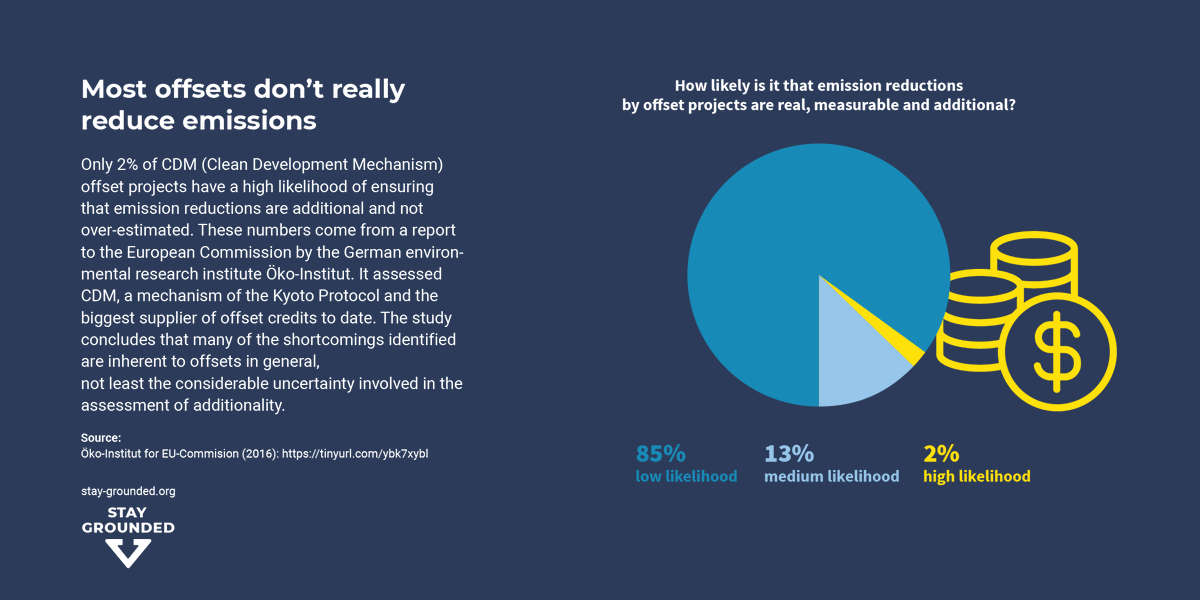CORSIA Baseline Change: Aviation’s Climate Regulation Is Broken Beyond Repair
Our press release on @icao's decision to change the baseline of the #CORSIA #offsetting programme.
stay-grounded.org/corsia-baselin…
Our press release on @icao's decision to change the baseline of the #CORSIA #offsetting programme.
stay-grounded.org/corsia-baselin…
#CORSIA is a total wreck beyond repair. In fact, it was broken from the very beginning. It covers a tiny fraction of aviation’s projected emissions and completely ignores the huge climate impact of airplane emissions other than CO2.
#CORSIA relies on harmful offsets and biofuels, both neo-colonial measures that shift the problems to communities in the Global South. The scheme is not only a means for greenwashing aviation: holding on to it also blocks effective regulation and leads to further problems.
Contrary to what the industry claims, aviation accounts for 5-8% of global heating. Before the baseline change, CORSIA was set up to cover only 6% of projected CO2 emissions from all international aviation between 2015 and 2050, excluding domestic aviation.
According to a study by Öko-Institut, the adopted change will lead to a further weakening of this figure by 25 to 75%. In reality, however, even this reduction potential is questionable, because in fact offset programmes often do not compensate emissions. 

CORSIA is not a useful instrument for lowering aviation’s climate impact. In fact, it is worse than nothing. That was already the case before the baseline change. Air traffic must be regulated at the UNFCCC as well as at national and regional levels.
Countries have to include aviation emissions in their national climate plans and emission budgets. Emission cuts in aviation in line with the 1.5°C limit are only achievable by reducing flights since offsetting and technological approaches fail to do the job.
This structural change of our mobility system has to go along with a just transition for the workers. The manner in which this ICAO decision was taken reveals once more ICAO’s problems: industry obedience and the lack of transparency towards civil society and the media.
/End of our thread regarding #ICAO's decisions to change the baseline of international aviation offsetting scheme #CORSIA. 🆙🔼
@jloistf @RHarrabin @fionaharvey @ChloeFarand @Ecohustler @ClimateHome @the_ecologist @AlexCKaufman @GreenAirOnline @rutherdan @Green_Europe @transenv
@jloistf @RHarrabin @fionaharvey @ChloeFarand @Ecohustler @ClimateHome @the_ecologist @AlexCKaufman @GreenAirOnline @rutherdan @Green_Europe @transenv
• • •
Missing some Tweet in this thread? You can try to
force a refresh













